Steve Jobs Tribute: Behind the Fierce Competitor and Exacting Boss, the ardent desire to serve connected the creator, the visionary and the executive.
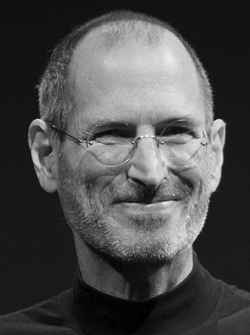 Much has been written about Steve Jobs the creator, the technology visionary and the enterprise leader, but none of these personas entirely get to his essence. Steve Jobs was all these things, par excellence, but what deeply touched and inspired Apple’s customers and what made Steve bearable as a boss was an unconscious yet poignant feeling that he was there to serve people. He flew the flag of The Rest of Us. Unswervingly. Vehemently.
Much has been written about Steve Jobs the creator, the technology visionary and the enterprise leader, but none of these personas entirely get to his essence. Steve Jobs was all these things, par excellence, but what deeply touched and inspired Apple’s customers and what made Steve bearable as a boss was an unconscious yet poignant feeling that he was there to serve people. He flew the flag of The Rest of Us. Unswervingly. Vehemently.
Without this higher calling, Steve would have been merely a successful tyrant. However, Steve’s commitment compelled thousands of brilliant and highly intelligent people to work for him and millions of customers to feel that Apple stood for something rare. Beige boxes and senseless software are optimized for profit, but Steve loathed mediocrity and its inherent compromises because they didn’t serve people, they acted at the expense of people. The desire to serve drove Steve Jobs, the creator, the leader and the innovator. Steve would never have led an oil company or a CPG, because he wasn’t a businessman. He wanted to make people’s lives better through technology. That was his love and his life’s work. Perhaps it was felt most palpably through interactions between people and Apple devices. My tribute to Steve honors him for this, in an unusual way…
“STEVE?! Thanks for answering.. everyone told me it would be better to email, but I wanted to call because it’s personal.
“Can you hear me okay? There’s some static on the line. Good. Well, I’ll try to make this short, but I have quite a few gifts for you.
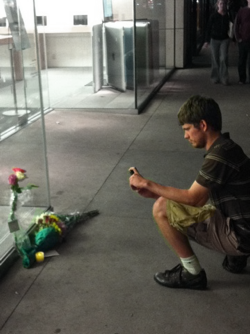 “The day you died, I found myself on Michigan Avenue in Chicago, fighting tears in front of the Apple Store. This surprised me but was completely understandable later. At that moment, I knew that something unusual was happening. I realized that you had touched me and other people, in front of the stores and millions of screens around the world, in a rare way. People everywhere are talking about you, there’s an outpouring, because you were personally responsible for giving us—dignity and the power to create. We have never met, but I built my first business on a Mac Plus when Multifinder was sexy. I’ve also worked with teams that built huge enterprise systems, and I’ve used dozens of Macs and PCs to design and deliver in all kinds of situations—as a strategy consultant, designer and communicator, not an engineer, although I’ve worked with some of the best. I don’t know if we’ll be cut off, so I want to give you the biggest gift first.
“The day you died, I found myself on Michigan Avenue in Chicago, fighting tears in front of the Apple Store. This surprised me but was completely understandable later. At that moment, I knew that something unusual was happening. I realized that you had touched me and other people, in front of the stores and millions of screens around the world, in a rare way. People everywhere are talking about you, there’s an outpouring, because you were personally responsible for giving us—dignity and the power to create. We have never met, but I built my first business on a Mac Plus when Multifinder was sexy. I’ve also worked with teams that built huge enterprise systems, and I’ve used dozens of Macs and PCs to design and deliver in all kinds of situations—as a strategy consultant, designer and communicator, not an engineer, although I’ve worked with some of the best. I don’t know if we’ll be cut off, so I want to give you the biggest gift first.
“Steve, the rational part of me says I’m crazy for being so sure, but I want to honor you for serving—me and millions of us. Your irascible commitment to making Apple machines unantagonistic, and even considerate, was your greatest gift. People are at their best when they serve others, it’s a humble act. Service is the highest calling, and you showed us, time and time again, how much you cared.
And caring when you are leading a huge organization can mean being a stickler and a prick when showing how much the details matter. Being the best and giving everything you have is an uncompromising proposition. People take that for granted, they forget too easily.
“Steve, on client engagements, I’ve read thousands of conversations in which desperate mothers, students, waitresses and fathers are begging other forum members to help them deal with inane machines and obstreperous software; the pain that exists is immense, and you extinguished it for millions by giving us intuitive interactions and human error messages. Steve, having designed things myself, I know how “dumb” machines are. When they appear to be “intuitive,” that means a lot of dedicated people are running use cases and identifying exceptions to anticipate and design in the machine’s “intuitiveness.” Steve, you and your team made it look easy, to the point that effete pundits glibly talk about “the next device.” But you didn’t have to do that. Millions of business optimizers would’ve told you to cut corners, it might’ve been more profitable in the short run. But you were not about that, and we felt it. You wanted to bring the best to us, and that meant beauty and efficiency and always. Bless you for that. You unlocked computing for people who didn’t want to become engineers just to get important stuff done.
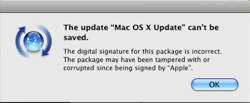 “Your brilliance as a creator is probably your most visible energy. A creator who knows that his gift is urgently needed, who is relentless about delivering it because he knows the need is infinite. A creator who knows he’s inside the tornado and that his days are numbered (as all of ours are). I feel that this is what drove you when you went back to Apple, it was your determination and ability to galvanize people. I was there during the dark clone days, I saw you come back. At NeXT, you came to understand software at the abstracted, enterprise level. Hardware only makes software possible, software is closer to people. Machines are only commands and scripted responses. And we humans are nothing but exceptions because we deal with a world that’s complicated. You elevated machines by making them appear considerate. Of course, machines have no feelings or soul, but your and Apple’s attention to detail anticipated when things would go wrong, and you gave the machine that humanity. Instead of error messages that said, “Stop 0x0000001E or KMODE_EXCEPTION_NOT_HANDLED” (Restart, you will lose everything [that’s the breaks]), you had human messages and even explanations. As a designer myself, I realize how much commitment this takes, and it doesn’t pay money directly. It’s the closets, Steve, the only reason that those messages were there is that someone cared, someone was committed. That was you—and your band.
“Your brilliance as a creator is probably your most visible energy. A creator who knows that his gift is urgently needed, who is relentless about delivering it because he knows the need is infinite. A creator who knows he’s inside the tornado and that his days are numbered (as all of ours are). I feel that this is what drove you when you went back to Apple, it was your determination and ability to galvanize people. I was there during the dark clone days, I saw you come back. At NeXT, you came to understand software at the abstracted, enterprise level. Hardware only makes software possible, software is closer to people. Machines are only commands and scripted responses. And we humans are nothing but exceptions because we deal with a world that’s complicated. You elevated machines by making them appear considerate. Of course, machines have no feelings or soul, but your and Apple’s attention to detail anticipated when things would go wrong, and you gave the machine that humanity. Instead of error messages that said, “Stop 0x0000001E or KMODE_EXCEPTION_NOT_HANDLED” (Restart, you will lose everything [that’s the breaks]), you had human messages and even explanations. As a designer myself, I realize how much commitment this takes, and it doesn’t pay money directly. It’s the closets, Steve, the only reason that those messages were there is that someone cared, someone was committed. That was you—and your band.
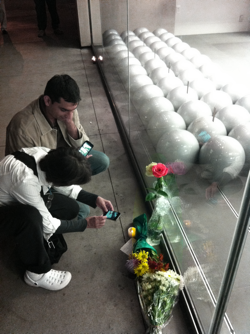 “Steve, thank you for showing us how to lead with integrity in an era whose Zeitgeist is loss of courage and abject followership. Most people think that any executive or politician is a leader because s/he heads large teams. No. Leaders stand for what they believe, especially when it’s inconvenient and risky. They aren’t looking behind to see if anyone’s following because they’re going anyway. But true leadership is inseparable from service, which also means commitment and not sugarcoating things. You were a fierce leader with a laser focus on competing and winning—because you insisted on offering the best. That’s why Apple was so rare. Serving is the only way leaders can motivate people to rise above themselves, time after time, year in and year out. We all need to be paid, to take care of “earthly business.” But far more meaningful is how we serve a higher cause. So you recognized that “people don’t know what they want until you show it to them.” That could have been an arrogant statement, but it wasn’t. Arrogant people might get it right once or twice. The humble person looks, observes, reflects. Relentlessly. And uses that insight to create, test, perfect and serve. You rose above the arrogance when you were fired and came back. People want to be led by someone who wants to serve them. Because they can trust that person to not be politically correct, to lay it on the line. We trusted you. And you didn’t let us down.
“Steve, thank you for showing us how to lead with integrity in an era whose Zeitgeist is loss of courage and abject followership. Most people think that any executive or politician is a leader because s/he heads large teams. No. Leaders stand for what they believe, especially when it’s inconvenient and risky. They aren’t looking behind to see if anyone’s following because they’re going anyway. But true leadership is inseparable from service, which also means commitment and not sugarcoating things. You were a fierce leader with a laser focus on competing and winning—because you insisted on offering the best. That’s why Apple was so rare. Serving is the only way leaders can motivate people to rise above themselves, time after time, year in and year out. We all need to be paid, to take care of “earthly business.” But far more meaningful is how we serve a higher cause. So you recognized that “people don’t know what they want until you show it to them.” That could have been an arrogant statement, but it wasn’t. Arrogant people might get it right once or twice. The humble person looks, observes, reflects. Relentlessly. And uses that insight to create, test, perfect and serve. You rose above the arrogance when you were fired and came back. People want to be led by someone who wants to serve them. Because they can trust that person to not be politically correct, to lay it on the line. We trusted you. And you didn’t let us down.
“You have inspired enterprise CIOs and individuals alike. Tonight, I had an amazing conversation with some smart non-techie friends. Years ago, I’d helped them get going on Macs, and they were telling me about you. They talked about you as if they were your neighbors, and of course they are; people who have Apple devices unconsciously feel the commitment, the consideration and the pain that goes into the design—especially when they use other machines at school or work. Everyone knows that computers are important, they are the tools of our age.
But you had a vision to transform the natural antagonism between humans and machines into a kind of unprecedented harmony. You elevated machines and devices and services by making them as beautiful and human as possible.
“Most machine and software makers are egotistical; they love their products and expect the people to accommodate them, and people do because they feel they have no choice. People feel intimidated and desperate and powerless before the machine, but they submit because they sense how important computers are. Many enterprise executives have similar attitudes. But you fought for us. You made the machines sensitive to us. You treated us as fellow human beings. We weren’t “consumers” to you, we were fellow creators who wanted to use computers to do our life’s work. And you enabled us to do it. I’m trying, but I can’t express how that makes me feel. It’s too vast.
“Your creativity and genius enabled you to serve us at an incredible level, and that’s why we adorn Apple stores with flowers and try to show you our gratitude in millions of ways. And you’ve led a retail renaissance along the way because Apple stores are oases of consideration, intelligence and service in a sea of pass-the-buck shoddy service that’s dehumanizing for employees and customers alike. Most of us have been brought to tears by machines designed by engineers. They cause us to get enraged after 45 minutes of phone trees trying to change an address, we miss flights and weddings due to their inane PINs and error messages, their capricious crashes cause us to lose days of work, and they even maim our family members with unapologetic error messages complaining of exceptions we have caused. We have all experienced this. But you were able to do something about it. And you did. Beautifully. Savagely. Tenderly.
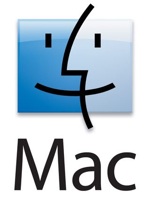 “And I don’t mean to focus on exceptions and errors. Many times, on my iPhone, iPod and Macs, I’ll intuitively try keyboard combinations or “finger gestures” that often work. This brings a profound moment of elation because it shows that someone cared, someone felt and thought as I did because the “machine” responded. It “knew” what I wanted to do. This is controversial but I don’t care, we don’t have much time. It is a strange kind of empathy, of intimacy, when that happens. But it’s not the machines even though people attribute it to them—it’s people—you and Apple—who care, who imagine, create and test, relentlessly, who follow up, who close the loop, who make us feel that someone cares, someone thinks of us. And, Steve, no one expected that. You gave it because you were driven to make it happen. Always. You gave us dignity and the ability to do our best work, and we are eternally grateful. Steve, there are very few people who have touched others in such a vital way. Many of us speak about “the means of production” in the Knowledge Economy being computers and networks, but it couldn’t have happened as easily without you—because most computers and systems cause massive friction, they don’t encapsulate complexity like you and Apple did. Just as important, you showed everyone else that it could be done different. More in harmony.
“And I don’t mean to focus on exceptions and errors. Many times, on my iPhone, iPod and Macs, I’ll intuitively try keyboard combinations or “finger gestures” that often work. This brings a profound moment of elation because it shows that someone cared, someone felt and thought as I did because the “machine” responded. It “knew” what I wanted to do. This is controversial but I don’t care, we don’t have much time. It is a strange kind of empathy, of intimacy, when that happens. But it’s not the machines even though people attribute it to them—it’s people—you and Apple—who care, who imagine, create and test, relentlessly, who follow up, who close the loop, who make us feel that someone cares, someone thinks of us. And, Steve, no one expected that. You gave it because you were driven to make it happen. Always. You gave us dignity and the ability to do our best work, and we are eternally grateful. Steve, there are very few people who have touched others in such a vital way. Many of us speak about “the means of production” in the Knowledge Economy being computers and networks, but it couldn’t have happened as easily without you—because most computers and systems cause massive friction, they don’t encapsulate complexity like you and Apple did. Just as important, you showed everyone else that it could be done different. More in harmony.
“Service and mission were also a big part of your ability to inspire. Of course, you were a mortal, just like anyone, but all people have the natural desire to rise above themselves, even though most don’t know how to act on it. However, people in the presence of someone who is emphatic, who will not take no for an answer, get inspired when they know it serves a greater cause. It’s not for money. Too many employees are in mercenary mode, they aren’t fighting for their own country. You were, though, and Apple was. Steve, your desire to serve was the substrate, made it all happen. People talk about your autocratic style. Autocracy motivated by power is empty, it’s simple tyranny because it’s about itself, not other people. But insistence on the higher purpose elevated the whole enterprise. That’s what you were about. Because you served normal intelligent people, your colleagues understood even though you were abrasive at times. Apparently you humiliated people, but the cases I’ve heard about targeted the true enemy of being the best—mediocrity (and Mobile me was the worst Apple offering I can ever remember). Being terrible at something does not serve people although it’s not the biggest threat because it’s obviously bad.
However, mediocrity is an insidious poison because it masquerades as goodness, it leeches passion out of people, and it’s the slow boil.
“Most of us humans have the urge to coast at times, but you relentlessly stamped out that tendency. Commitment isn’t convenient, it’s a pain in the ass, and often. We all understand service when we see it, and most of us want to rise above ourselves. You never lost that. It’s simple in concept but very hard because you have to transcend. And to do it time after time is next to impossible. Groups of people need a heart and a conscience to keep them going. That was you.
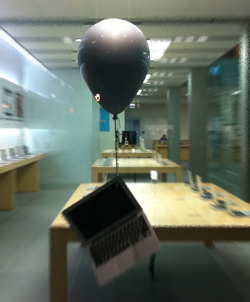 “Now for something more out there that I still have mixed feelings about. By making computers easier to use, you led the merging of man and machine. The Mac logo shows it beautifully. We are separate, of course. But the 21st century so far is showing that man + machine is another S-curve. More than any single person, you made this happen by your insistence on making machines approachable. There is an intimacy between people and their machines that people don’t like to talk about. The fact is, with Macs and other Apple devices showing the way, we are rewiring our brains. Although we humans know little about how the brain works, it’s pretty well established that the brain is quite plastic. So there’s tremendous potential for people who learn how to do this. If you hadn’t been driven to create humanlike machines, we would have been retarded until someone else did. How many decades from now? I don’t think I’d have lived to see it, and I’m about your age.
“Now for something more out there that I still have mixed feelings about. By making computers easier to use, you led the merging of man and machine. The Mac logo shows it beautifully. We are separate, of course. But the 21st century so far is showing that man + machine is another S-curve. More than any single person, you made this happen by your insistence on making machines approachable. There is an intimacy between people and their machines that people don’t like to talk about. The fact is, with Macs and other Apple devices showing the way, we are rewiring our brains. Although we humans know little about how the brain works, it’s pretty well established that the brain is quite plastic. So there’s tremendous potential for people who learn how to do this. If you hadn’t been driven to create humanlike machines, we would have been retarded until someone else did. How many decades from now? I don’t think I’d have lived to see it, and I’m about your age.
“I want to thank you for something that’s with me constantly. During the Businessweek interview, you talked about how Apple outperformed because you said no more often. You led the team in making the hard calls. You didn’t pursue most ideas, which enabled Apple to out-invest competitors and to continuously set the bar. I run my business according to this principle, too, and my approach to helping clients incorporates it. In an era of infinite choice—of whom to follow, whom to serve, whom to read, what to do—saying no is a critical survival strategy. Most of us are terrible at it. We want it all, we don’t want to choose. To be the best, you have to choose.
“Steve, I’m so sad—and afraid because you’re not here as you were. Because you gave us a precious gift, the ability to do our life’s work. Beautifully.
“Steve, I don’t want to hang up, but I know I have to go now. Thank you for accepting these gifts, and bless you.
“Good-bye, Steve. We will never forget you. Ever.

Leave a Reply
You must be logged in to post a comment.